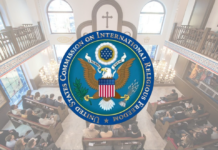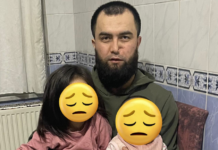Abdulkadir Kuday, a Kurdish inmate with amyotrophic lateral sclerosis (ALS) whose health has been deteriorating, remains imprisoned despite a Council of Forensic Medicine (ATK) report confirming he needs medical care, the Artı Gerçek news website reported.
Salih Kuday, Abdulkadir’s brother, has been vocal about his brother’s dire condition, stating that he now depends on medical devices and suffers from additional health issues, including heart and stomach problems. “He has a hard time breathing, can’t eat on his own and is extremely frail,” Salih said.
On October 30, 2023 the ATK issued a report stating that Kuday could not live independently, prompting a request for his release. However, this appeal was later denied, and by May 24, his lawyers reported his weight had dropped to a critical 41 kilograms.
Kuday’s release has been denied on the grounds that he poses a “danger to society,” a decision that has sparked significant outrage from his family and human rights advocates.
“How can someone who has difficulty breathing and walking pose a threat?” Salih asked, criticizing the rationale behind the denial of his release. “If they admit that this decision is political and because my brother is a Kurd who loves his land and people, then we will stop asking.”
Salih also revealed that his brother suffered a heart attack six months ago, and despite this, there was a significant delay in his transfer to a hospital, which he claims was intentional.
Detained during the Kobani protests in October 2014 and later arrested on terrorism-related charges, Kuday has since been transferred between multiple prisons and is currently held at the Metris R (Rehabilitation) Type Prison in İstanbul.
Initially diagnosed with a herniated disc in 2021, Kuday underwent surgery, only to later discover he had been misdiagnosed. He was eventually diagnosed with ALS, a debilitating neurological disease that has left him partially paralyzed and unable to perform basic functions without assistance.
Every year, rights groups report the death of dozens of sick prisoners, either while behind bars or shortly after their belated release, which often comes at the end-stage of their illnesses.















